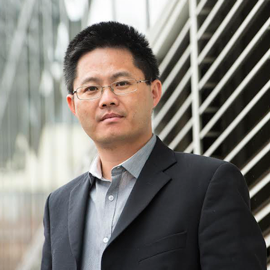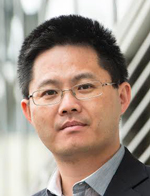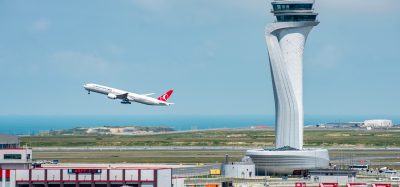The challenges with growth and expansion
- Like
- Digg
- Del
- Tumblr
- VKontakte
- Buffer
- Love This
- Odnoklassniki
- Meneame
- Blogger
- Amazon
- Yahoo Mail
- Gmail
- AOL
- Newsvine
- HackerNews
- Evernote
- MySpace
- Mail.ru
- Viadeo
- Line
- Comments
- Yummly
- SMS
- Viber
- Telegram
- Subscribe
- Skype
- Facebook Messenger
- Kakao
- LiveJournal
- Yammer
- Edgar
- Fintel
- Mix
- Instapaper
- Copy Link
Posted: 26 August 2016 | Phil Fine, Journalist | No comments yet
From 1995 to 2015, passenger kilometres in China ballooned from 68 to 728 billion. But rather than build new airports to cope with this capacity, China may be better off expanding the big ones it now has. Dr Zheng Lei is Director of the Centre for Aviation Research at the University of Surrey and founder of the Institute for Aviation Research, an independent think tank. Now in China on a research assignment, Dr Lei recently spoke to journalist Phil Fine about the challenges that China’s airports face…


China boasts plenty of airports. In fact, by the end of 2015 there were 210…
Over 100 of these handle fewer than a million passengers a year. And although another 44 airports welcome 1 to 10 million passengers annually, most of these airports have yet to reach capacity. Moreover, the 26 other airports that log at least 10 million passengers yearly are very busy.
Why are so many of China’s airports under-utilised?
Because, unlike their American counterparts, China’s airlines have yet to establish an effective hub-and-spoke network. Take Delta Airlines. It’s ‘hubbed’ at Atlanta, Minneapolis and Salt Lake City and similarly, Continental Airlines is ‘hubbed’ at Houston, Cleveland and Newark.
So why aren’t China’s airlines setting up their own hubs?
They are. Three of the country’s biggest airlines – Air China, China Southern and China Eastern – are now establishing hubs. But they may find it rough going. That’s because would-be hubs, such as Beijing and Shanghai, are over-crowded. To be fair, Beijing is now building a second airport, one that will be cutting edge. It’s due to open in 2019. Moreover, Guangzhou, a city of 8.6 million northwest of Hong Kong on the Pearl River, is building a new runway, as well as a second airport. So, China will soon boast some of the best facilities in the world. Still, both of Shanghai’s two airports are crowded.
Moreover, unlike the U.S., China doesn’t yet need hubs handling domestic traffic. Indeed, the importance of the country’s hubs is mainly reflected in long-haul international routes. In fact, most flights are domestic with planes flying point-to-point. In addition, comparatively few Chinese fly overseas. So, the bulk of airline traffic is confined to the coast, the richest most populous part of the country, home to its biggest cities. Then, too, for short-haul travel, China wants travellers to use trains, not planes. That’s why the government is now tying the country’s airports into its network of high-speed passenger trains.
Still, more and more people are flying. In 2005, only one in 10 Chinese residents were able to fly at least once a year – by the end of 2014 that number had tripled. What is driving this increase?
Market deregulation for one thing. Air travel in China used to be heavily regulated. But thanks to deregulation, fares have fallen and more destinations have been added. So, air travel has become more competitive. Then, there’s urbanisation. In 1995, 29% of the country’s population lived in cities. By 2015, that number had nearly doubled. That’s key because people who live in cities are more likely to fly than people who don’t. Most important, the Chinese are richer. In 2005, China’s gross domestic product per capita was US$1,749. Nine years later, it had jumped by more than 330%.
Although a Chinese airport has yet to be attacked, terrorism has a global footprint. Is China well-protected?
I think so. All its airports have put strong security measures in place. Although I’m not sure if other countries share intelligence with China about possible terrorist attacks, the country is a member of the International Civil Aviation Organization (ICAO). And ICAO has issued a lot of security guidelines. True, getting passengers through security at Shanghai and Beijing, sometimes, takes longer than, say, at London’s Heathrow Airport. But that’s because of the stringent security.
Biographies




program in air transport management. Dr Lei earned a PhD in Air Transport and Tourism Management at the University of Surrey, focuses on the industry’s real-world requirements. Not only is he frequently invited to give keynote speeches to policymakers at industry conferences and seminars, but he advises airlines, airports, aircraft manufacturers, aviation service providers and civil aviation authorities on strategic issues. Born and raised in China, Dr Lei speaks Mandarin, Cantonese and English.

















